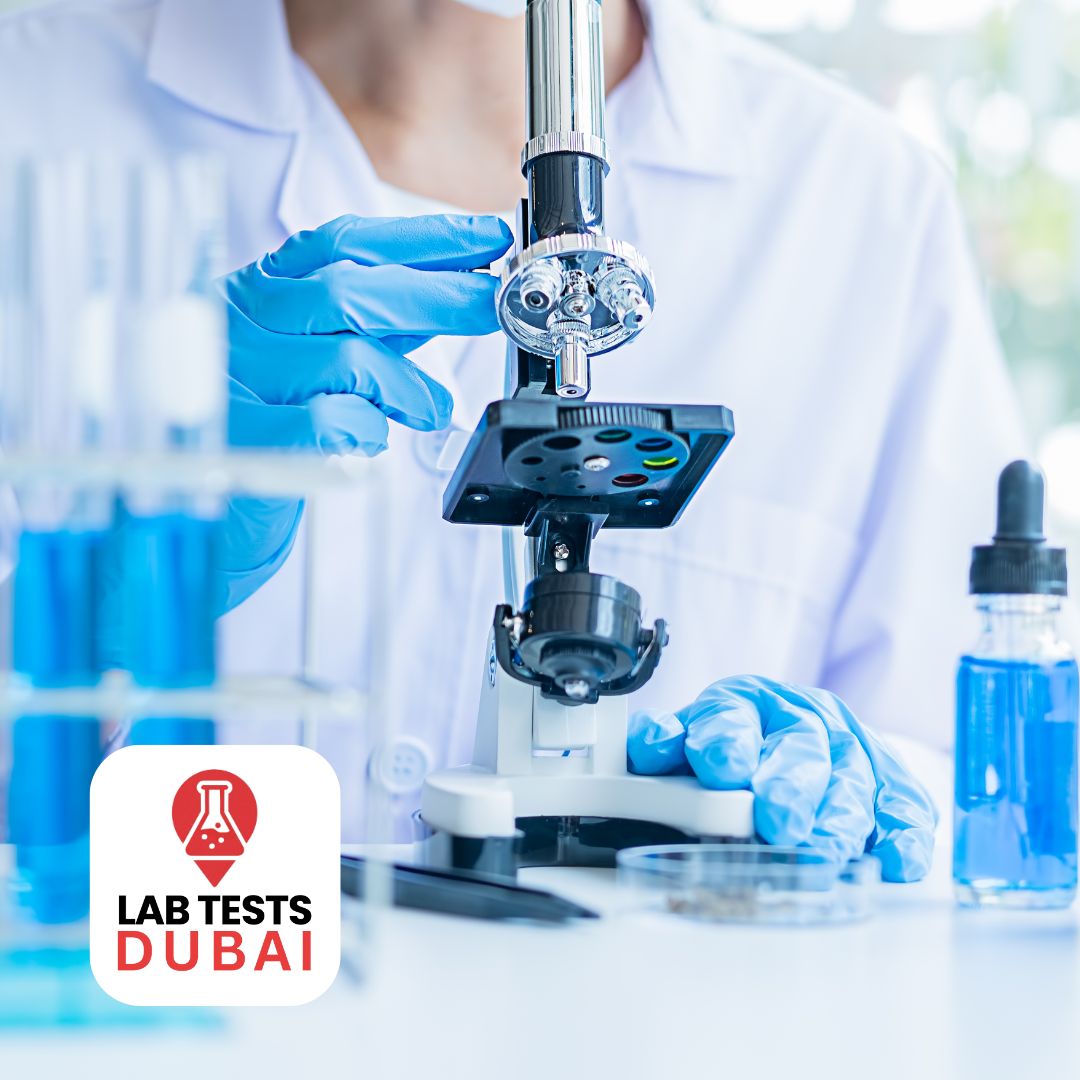Somatic HRR Panel Test in Dubai: Detect Cancer Risk & Guide Precision Treatment Early
5.500,00 د.إ
The Somatic HRR (Homologous Recombination Repair) Panel is a cutting-edge genomic test that analyzes tumor tissue for mutations in DNA repair genes — helping oncologists detect aggressive cancers early, assess treatment response, and recommend personalized therapies like PARP inhibitors.
Description
Somatic HRR Panel: Advanced Genomic Testing for Cancer Risk & Targeted Therapy in Dubai
In the era of precision medicine, knowing your cancer’s genetic profile can make all the difference. The Somatic HRR (Homologous Recombination Repair) Panel is a cutting-edge genomic test that analyzes tumor tissue for mutations in DNA repair genes — helping oncologists detect aggressive cancers early, assess treatment response, and recommend personalized therapies like PARP inhibitors.
At Lab Tests Dubai, we offer the Somatic HRR Panel using advanced next-generation sequencing (NGS) technology, giving patients and healthcare providers in the UAE access to world-class cancer diagnostics — fast, accurate, and clinically actionable.
Why You Need the Somatic HRR Panel
The Somatic HRR Panel tests for mutations in 16+ key genes involved in the Homologous Recombination Repair (HRR) pathway — a critical system your cells use to fix damaged DNA. When these genes are mutated (e.g., BRCA1, BRCA2, ATM, PALB2, CHEK2), cells can’t repair DNA properly, increasing the risk of cancer development and progression.
This test is especially important for patients with:
- Prostate cancer (especially metastatic castration-resistant)
- Ovarian, fallopian tube, or primary peritoneal cancer
- Pancreatic or breast cancer (in specific clinical contexts)
- A family history of cancer or suspected hereditary syndromes
Unlike germline testing (which looks at inherited mutations), the Somatic HRR Panel analyzes tumor DNA only, revealing mutations acquired during life. This helps determine:
- Eligibility for PARP inhibitor therapies (e.g., Olaparib, Rucaparib)
- Prognosis and tumor aggressiveness
- Potential resistance to certain treatments
Early genomic profiling = smarter treatment decisions.
Symptoms & Conditions That Indicate This Test
While the Somatic HRR Panel is not symptom-based, it is strongly recommended if you or a loved one has been diagnosed with:
- Metastatic prostate cancer
- High-grade serous ovarian cancer
- Triple-negative breast cancer
- Pancreatic adenocarcinoma
- Recurrent or treatment-resistant tumors
Your oncologist may also recommend this test if:
- There’s a strong family history of cancer
- You’re exploring targeted therapy or clinical trials
- Standard treatments are no longer effective
This test is a gateway to precision oncology — ensuring you receive the most effective, least toxic treatment based on your tumor’s genetics.
How the HRR Pathway Works: Natural DNA Repair Mechanism
The Homologous Recombination Repair (HRR) pathway is your body’s “genetic spellchecker.” It fixes double-strand DNA breaks — one of the most dangerous types of DNA damage.
Key genes in this pathway include:
- BRCA1 and BRCA2
- ATM, CHEK2, PALB2, RAD51, CDK12, and others
When these genes function properly, they help prevent uncontrolled cell growth. But somatic mutations (acquired in tumor cells, not inherited) can disable this repair system, leading to genomic instability and cancer.
The Somatic HRR Panel detects these acquired mutations in tumor tissue, helping identify patients who may benefit from PARP inhibitors — drugs that exploit this DNA repair deficiency to kill cancer cells selectively.
What Happens If You Don’t Get Tested?
Skipping genomic testing like the Somatic HRR Panel can mean:
- Missing out on life-extending targeted therapies (e.g., PARP inhibitors)
- Receiving less effective chemotherapy or hormone therapy
- Delayed diagnosis of aggressive or hereditary cancer types
- Reduced chances of enrolling in clinical trials for innovative treatments
For example:
- Men with HRR-mutated prostate cancer treated with PARP inhibitors show significantly longer progression-free survival.
- Women with BRCA-mutated ovarian cancer respond better to targeted drugs than to conventional chemo.
Knowledge is power. The Somatic HRR Panel gives you and your doctor the insights needed to fight cancer smarter — not harder.
How to Prepare for the Somatic HRR Panel Test
This test requires tumor tissue, not blood. Here’s what you need to know:
✅ Sample Type: Formalin-Fixed Paraffin-Embedded (FFPE) tissue block or slides (from prior biopsy or surgery)
✅ Medical Records: Bring pathology reports and clinical history
✅ Doctor’s Referral: Required for test authorization
✅ No Fasting: Not applicable — this is a tissue-based genomic test
Our team at Lab Tests Dubai will coordinate with your oncologist or hospital to collect and process your sample securely. We support both local and international sample submissions with strict quality control.
Test Overview: Precision Genomics, Rapid Results
| Parameter | Details |
| Test Name | Somatic HRR Panel |
| Genes Analyzed | 16+ HRR pathway genes (e.g.,BRCA1, BRCA2, ATM, PALB2, CDK12, CHEK2) |
| Sample Type | FFPE tumor tissue (block or 5–10 unstained slides) |
| Methodology | Next-Generation Sequencing (NGS) |
| Turnaround Time (TAT) | 7–10 business days |
| Report Includes | Mutation variants, clinical significance, therapy implications (e.g., PARP inhibitor eligibility) |
| Ideal For | Prostate, ovarian, breast, pancreatic cancer patients |
Ready to Take Control of Your Cancer Care? Book Your Somatic HRR Panel Today!
Don’t leave your treatment to guesswork. The Somatic HRR Panel from Lab Tests Dubai unlocks personalized cancer care by revealing the genetic drivers of your tumor.
🔹 Detect actionable mutations
🔹 Qualify for targeted therapies
🔹 Empower your oncologist with precision data
🔹 Access advanced NGS technology in Dubai





Reviews
There are no reviews yet.